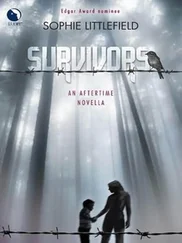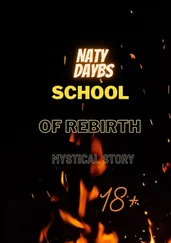The ease with which he lied surprised Cass. It wasn’t just a fiction, made up on the spot; it was as though Dor slipped on an invisible skin and became someone else, if only for a moment. The change was subtle, hard to break down into parts. Maybe there was a bit more swagger, as though he meant to prove that he was confident with women. He held his head a little higher so that he had to look slightly down at Evangeline, as if trying to establish dominance.
The Dor Cass knew was not prone to self-importance. He was a watcher, a contemplative man who kept his own counsel.
If he could be changeable, so could she. Cass realized Dor’s skill was less in the words he chose and more in the delivery, and she thought about what kind of woman would find Dor attractive, what kind of woman would be drawn to his power.
She ducked her chin coquettishly. “I needed a man,” she said coyly. “David’s a good one. And Ruthie gives me a reason to get up in the morning.”
For a long moment the two women stared at each other, neither blinking. Finally, Evangeline laughed, a surprisingly delicate, feminine sound. “Well, let’s see if we can give you another. Reason to get up in the morning, that is. As I’m sure you’ve already figured out, outliers are of great value to us, to our little society here.”
“Because of the research,” Cass said. “Yes, I remember you telling me that. How is that coming? Are you any closer to making a vaccine?”
There was the faintest flicker in Evangeline’s eyes-a fraction of a second when her focus shifted, barely enough to signal that she wasn’t telling the truth. “So close. The team is all very excited, of course. You’re not just immune-you’ve used that immunity against a full infection. Let’s see if we can expedite your welcome. David will need to be tested, of course. And Ruthie.”
“You’re testing everyone?”
“It’s just a simple blood test.” Evangeline pushed back her chair and they all rose, Dor picking up Ruthie effortlessly. “A finger poke, that’s all they need. And I think you’ll be impressed with our research facilities. It’s the one area where we’ve retained power almost from the start.”
“Electricity?” Dor asked as they followed Evangeline out of the office. She led them down the hall toward the rear of the building.
“Generators, for now. We draw a little solar power but a lot of the panels were damaged during the riots. We’re working on that, but for now the team thinks we can get turbines operational by spring.”
“Wind turbines?”
“Yes. The university already drew some power from them. It’s just a matter of repairing the ones that were damaged and diverting the output. And we’ve been lucky to recruit people who know how to do that.”
There was no irony in her tone, but Cass suspected that the experts they “recruited” were given little choice in the matter. Still, electric power from a renewable resource-the possibilities were boundless.
There had been talk in the Box of rigging up a crude wheel in the creek to generate some power, but so far no one had figured out how to do that. Three men who spent a couple of nights in the Box a few weeks earlier had plans to travel to the oil fields in Coalinga and find a way to siphon out the fuel-if anyone did that, car travel could be a possibility again, at least until it ran out for the second time.
And of course there was the ongoing quest to make ethanol from kaysev. Some people believed that eventually kaysev would provide the clean, sustainable fuel that had eluded the world for centuries; for now most attempts were far from an unqualified success, difficult to refine and yielding a lot of malodorous black smoke.
Cass and Dor followed Evangeline out the back door, along a winding walkway that paralleled the new wall at the edge of campus. Between the walk and the wall was a lone building, three stories tall, plain and blocky and built of homely brown brick-a small dorm, from the looks of it. Many of the windows on the higher floors were obscured by narrow blinds, but here and there they had been raised.
Cass saw a face, round and pale, pressed to the glass of a window on the fourth floor, near the end of the building. It appeared to be a girl, perhaps a young teen. For the briefest second it seemed to Cass that the girl behind the window was staring directly at her, and her expression was one of the saddest Cass had ever seen. Then, abruptly, she disappeared.
“TAPP CLINIC” HAD BEEN PAINTED ON THE WALL next to the entrance to what had been a physicians’ office building. Someone had carefully detailed each letter and outlined it with black.
“We aren’t using the main hospital facilities at this time,” Evangeline said, pointing out the large modern facility next door. The sign reading Emergency remained, but the doors were sealed with wood and more steel bars.
But the office buildings arrayed around the facility looked neat and tidy. As they approached, a guard stepped out from an overhang.
“Lieutenant Oxnard,” he said briskly.
“Pace let you know we were coming?”
“Yes, ma’am.”
Evangeline didn’t spare him any further conversation. Inside, the familiar sound of a generator ground in the background. The second thing that hit Cass was the smell-the same industrial cleaner they’d used in every hospital she’d ever visited. The sliding glass doors didn’t slide, and as they made their way through the lobby and up the stairs, they passed plenty of technology that, without power, was little more than junk taking up space-digital displays, elevators, door alarms, bays of equipment at nursing stations, telephones.
They walked down halls lit with a very occasional bulb. A woman wearing hospital scrubs pushed out of a set of doors in a hurry, pulling off a pair of gloves. She wore a turban and a fabric mask over her nose and mouth. Cass peered past her and saw-thought she saw-a woman on a hospital bed with her feet in stirrups, surrounded by more people in masks and scrubs. But the doors closed quickly and Cass wondered if she’d seen something else in the blur of people and activity.
Evangeline continued on as though nothing had interrupted the silence of the hallways.
“In here,” Evangeline announced at last, and ushered them through a door to a small waiting room. The upholstered chairs and coffee table were from every waiting room Cass had ever been in-all that was missing were the magazines. A bored-looking soldier in fatigues and ankle-high boots watched with his arms folded across his chest as four wasted, thin, exhausted-looking adults in dirty clothes slumped in chairs.
The smell of unwashed bodies filled Cass’s nostrils and she coughed and struggled not to gag, and then felt ashamed of herself: she herself had smelled worse not long ago, waking in a field with no memory. These people had struggled as she had; more, in fact, since they lacked the supercharged immunity the Beater attack had left her with. They’d been freewalking, on the run from Beaters and maybe from Rebuilders, as well. Whatever the case, they didn’t look like they had it in them to go much farther.
Evangeline led them past the refugees without sparing them a glance. Beyond the waiting room was a warren of tiny offices. Through open doors Cass saw medical equipment, examination tables and cabinets of supplies. In several rooms, ravaged-looking patients were having their blood drawn by men and women in scrubs and masks.
“Don’t worry, you’re getting star treatment,” Evangeline said sarcastically. Cass could tell it galled her to have to extend any special privileges to her. The woman still despised her, even more than before. “Pilar keeps her room clean. We only use it for those who, shall we say, do not pose a risk of contamination from the most common complaints.”
Читать дальше
Конец ознакомительного отрывка
Купить книгу












